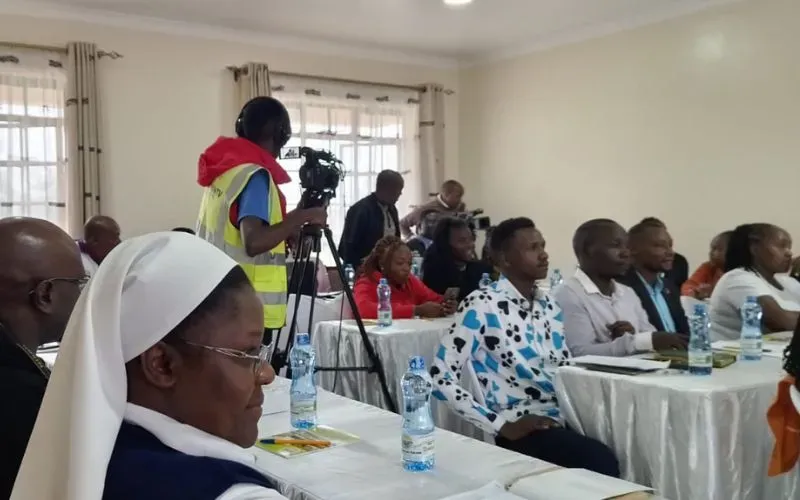Nairobi, 25 April, 2024 / 9:25 pm (ACI Africa).
Emotions are not entirely a bad thing in journalism especially if they lead to deep spiritual reflection and conversion, Catholic journalists in Kenya have been told.
Speaking to Catholic journalists in Kenya at their ongoing workshop in Nairobi, Archbishop Anthony Muheria urged the participants to package their content in a way that it touches the hearts of their respective audiences.
Archbishop Muheria reminded the Catholic journalists that they now operate in a space that has shifted from communicating facts to opinions and emotions.
“There is a shift in media from the dissemination of information to the dissemination of emotions. Journalism used to be about facts. Now, people no longer want to just know. They also want to feel,” the Local Ordinary of Kenya’s Catholic Archdiocese of Nyeri who was recently elected Vice Chairman of the Kenya Conference of Catholic Bishops (KCCB) said.
Underlining the need for Catholic journalists to make good use of emotions, which he also described as “pathos”, Archbishop Muheria said, “We must train our voices to carry the feel and power of what we are saying. In radio for instance, pauses are such an effective tool to communicate emotions.”








